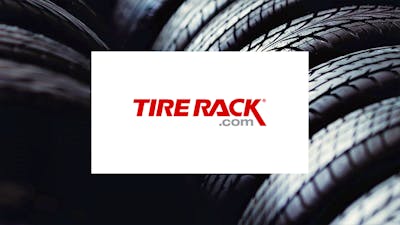Best Tires for Your EV
There are many choices when it comes to tires for your vehicle, all depending on what you drive, how you drive and where you drive. This is also true for electric vehicles, commonly called EVs. There’s no one tire that’s the best option for every EV in the industry, so you need to be sure you get one that’s rated for use on your vehicle and the conditions in which you typically drive. Here’s what you need to know about buying tires for your EV and how to decide which ones are the best.
Get the Best Deals on Tires
Tires for the Most Popular EVs on the Market
There are a wide range of tires available for EVs all depending on the conditions in which you drive. There are performance, winter, summer, all-season, all-terrain, and all-weather tires for your vehicle. The key is to be sure you pick the right tires for where you drive and the right size. This table shows some of the most popular tires for today’s EVs. Note that some EVs have more than one tire size.
Be sure you check to see what size tires are on your vehicle when it comes time to have them replaced.
| EV Type | Tire Name | Tire Type |
|---|
Shop Tires Online and Save
Online tire prices are usually less than in store

What to Consider When Choosing Tires for Your EV?
Tires for an EV need durable sidewalls because of the heavy load they carry. It’s not what you pack in the car, but the EV battery that is the issue. EVs have large batteries and batteries add a lot of weight to a vehicle. A durable sidewall helps manage that extra weight.
You also want to look for a tire with low rolling resistance. This is a great tire for anyone trying to maximize range in an EV or even for improved fuel efficiency in a gas-powered vehicle. Basically, these tires move along more smoothly and easily so the EVs electric motors don’t use as much power to get the car moving.
It’s also important to have tires that can withstand the torque generated by an EV. Unlike the slow buildup of torque that happens when you press the accelerator in a gas-powered vehicle, torque in an EV is near instantaneous. That puts a lot of stress on tires every time you hit that pedal. It’s important that the tire you choose is rated to handle that stress.
Tire manufacturers are now developing new models that they say meet the unique needs of EV owners. One example of this type of tire is the Goodyear ElectricDrive GT. Goodyear recognized three main areas of interest to a large portion of EV owners. They include a quiet ride, a long-lasting tire, and efficiency. Goodyear incorporated all of the elements necessary to make the ElectricDrive GT ideally suited to these qualities.
What is the Cost of Tires for Your EV?
There are a wide range of tire prices for every gas car and the same is true of EVs. It all depends on the car and how you drive. Something like a Nissan Leaf, which isn’t focused on performance, has tires that run from $75 to $295. If you happen to drive an Audi RS e-tron GT, then you’re looking at pricing from $350 to $600. A Tesla Model S sits in the middle with pricing from $250 to $400.
You may notice that an affordable car like the Leaf has more affordable tires while a luxury performance car like the Audi RS e-tron GT has expensive tires. It’s the same way with gas-powered cars. If you’re thinking of getting a pricey EV, then you’re going to spend more to replace its tires when the time comes.
How Long Will EV Tires Last?
Expect the tires on your EV to last anywhere from 30,000 to 40,000 miles. The added weight of the battery makes tires wear more quickly on an EV. So does the high torque generated every time you press on the accelerator.
Yes, that means you’ll spend more money on tires with an EV than with a gas-powered car, but take heart. You’ll save money on gas and have lower overall maintenance costs that will make it all work out in your favor in the end.
Why Do EVs Need Special Tires?
Electric vehicles have four things that set them apart from most gasoline and diesel vehicles: weight, efficiency balancing, lower noise levels, and power delivery. Electric cars are heavier than traditionally-powered combustion vehicles. Usually by thirty percent or more. This gives them a unique efficiency balance between traction needs and rolling resistance.
Rolling resistance is the friction created by tires rolling across the roadway. All vehicles need some rolling resistance because that’s what keeps the car wheels-down and moving safely. But too much, and you sacrifice efficiency.
Just having LRR tires isn’t enough, though. Electric vehicles also deliver a lot of power to the road and they do so all at once. Combustion-powered vehicles like a gasoline car ramp up power over time rather than delivering at one time. This immediate power of an EV means its tires need to be more “sticky” so they can transfer the power being delivered to traction to make the vehicle move.
Most of the tires listed above are high-load (HL) rated tires made specifically for electric vehicles. They often have a higher inflation (psi) rate than a standard car in order to mitigate noise, have a rolling resistance balance for both low-speed stickiness and at-speed cruising for efficiency, and stronger sidewalls and compounds to bear the weight of the EV.
Read more on the Best Tire Deals available here.
See our overall recommendations for Best Tires
See our recommendations for the 10 Best Tire Brands for 2024













